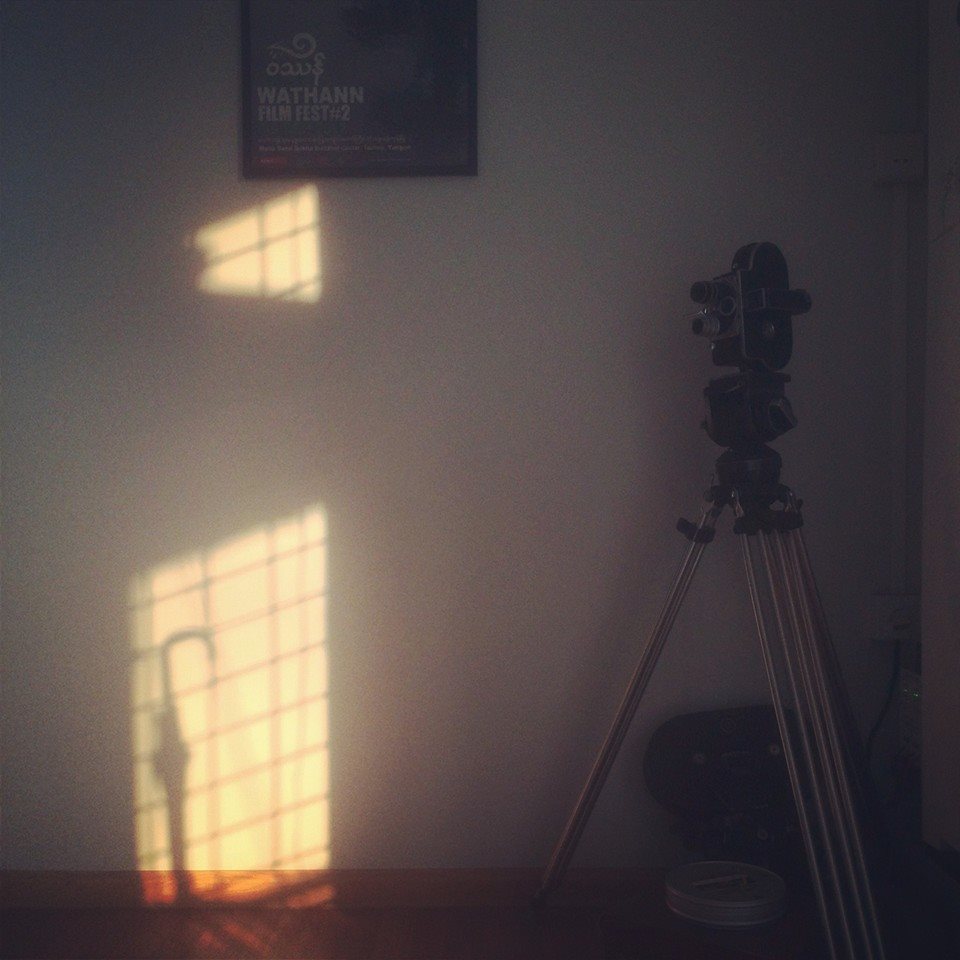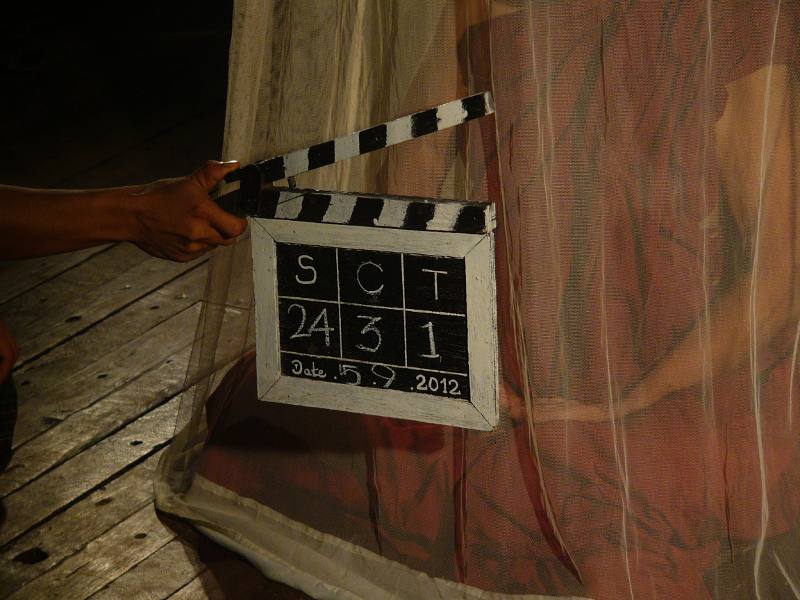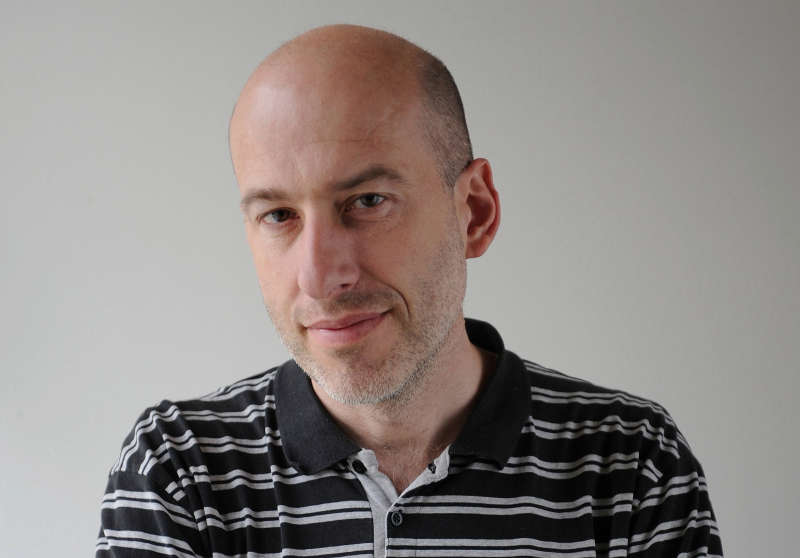Until Consumerism Wins
What is your view on the current political situation in Burma?
At the moment, they are in the middle of a joyful season of great relaxation. The newspapers have changed, television has changed a bit and the internet has become faster. In many ways it is a unique and unusual situation, because from a personal point of view, the one stirring reformation and the opening of borders is the junta, which has been able to transform itself into a civilian government. A part of the generals stripped off their uniforms, consecutively and thoroughly privatized key sectors and today they benefit from the fact that personal property is an untouchable idol to the West. When the representatives of the state are no longer soldiers, but businessmen and proprietors, there is basically no problem with anything. The core of the Burmese junta had to risk the crossover to a life state, which they had strenuously suppressed for years – so far it looks as though it worked.
Does this mean that censorship does not exist?
Censorships exists, but it's not thorough. They have suddenly decided that they don't mind people speaking and writing about anything. For example the projection of films in public spaces is watched carefully, but they do not have an adequate personnel capacity to identify something less explicit, for example, something controversial.
What does the official film culture in Burma look like?
In Burma, thousands of feature films are made per year, each one coming into existence within two to four days. The style is usually more of a tacky melodrama. In terms of camera work, the films are shot in a documentary way. They are distributed via VCD through rental shop and store chains controlled by the government. Cinematography designated for the cinemas and supported by the government, exists as well. Tens of feature films, solely comedies, in a style which cannot be compared to anything else in the world, including Bollywood, are made per year. Films are very theatrical and sentimental. Popular and well liked celebrities have almost absolute control during the making of a film, which also includes deciding on who will be the director.
Do independent films exist in Burma?
The independent scene has been birthed this past year or two. Often it is people who have taken part in workshops, organized for the past ten years by FAMU or by the German Yangon Film School in Burma. The Burmese have also filmed for various exile media or foreign television. Most of them are, however, journalists, rather than film makers. Documentaries themselves exist in official spheres only in the form of educational films – even during the junta era, a primitive ambition to uplift the agricultural provinces existed. Except for solely utility films and occasional filming for foreign staff, no scene of any sort in Burma existed, which would advance and cultivate the term documentary. That is also why four years ago, still on the verge of the strict regime, we took part in initiating the birth of a festival focused on local production. In September this year, it was held for the fourth time with great publicity.
What kind of documentaries about Burma have been filmed at home and in the world?
In the past decade, a fare amount of humanitarian and political documentaries have been filmed on the topic of Burma by foreign film makers. These films have been systematically presented at the festival One World in the Czech Republic. On the other hand, dozens of television travel documentaries are being made - in the genre of Travelmanias – which fail at presenting the face of reality. A few years ago I met a German director of Czech origin, who graduated from FAMU in the 70's and lives in Munich – Jana Markova. She filmed several pop-ethnographic films, which de facto reproduce the official view of their own country and nation, romanticizing the country by entwining truly breathtaking scenes of the countryside and sacred Buddhist architecture and at the same time they are in many ways exchangeable with similar types of films from anywhere in the world. In Burma, as far as I know, only one Czech documentary of greater ambition was made and that is The Art to Survive the Longest War in the World by Štěpánka Šimlová, which in a semi-reportage way describes the activity of Free Burma Rangers during a military training of one of the rebellious ethnic groups.
How do you, as a film maker, relate to Burma?
I take interest in the presence of Czechoslovakian citizens in Burma. I have collected a large amount of materials and I hope to make a film on the topic with my wife Zuzana Piussi, when our child grows a bit older. Although most of my time spent in Burma has been dedicated to teaching, I have been filming various things that have not quite come to maturity yet. Some of the most interesting footage was filmed four years ago, when I was arrested and after five days of internment and interrogation deported. During the whole time I was filming with a small camera. If I find the material, at the present I believe it wouldn't jeopardize any of our friends. Some type of an essay-comedy will eventually become of it.
In what way will Burma be presented at this years Jihlava festival?
At Jihlava, we will present Burmese film production in four blocks. The first will represent films of Burmese filmmakers filmed during workshops led by foreign filmmakers and mentors – including FAMU workshops. The second one shows the intensive veristic aspect of independent cinematography, during which we shall present the feature film The Monk by The Maw Naing. This film also originated as a part of the FAMU and the Czech Ministry of Foreign Affairs project and after its premiere in Karlové Vary, it successfully starts its contest journey to various other festivals. The third block is made up of the most interesting material of the independent film scene evolving in Burma. It still isn't certain if we will be able to receive the film Par Pi Ma, which uses elements of documentary, even though it's a acted film. It is a document of its time, which was made at the request of the junta after the year 1988 as a commentary on the nation's history and its important figures through the perspective of the ruling party. It has never been shown abroad.

Wathann Film Festival
Why should the Czech spectator be interested in Burma?
The local people and culture have a great humanistic potential. Even though it is possible, and quite probable that consumerism shall win, at the moment it still isn't decided completely. A land, which has found itself isolated due to crazy historical factors, still has somewhat of chance to reflect upon global progression and conclude some corrections for itself. Local reasons exist as well. Before the November revolution, Czechoslovakia was Burma’s third biggest business partner. Many local people viewed and still view Czechoslovakia as a developed country somewhere on the other side of the planet. After the revolution, business almost subsided, but then came Václv Havel, who significantly supported Aung San Suu Ťij, nominated her for a Nobel Prize, which she won. Due to this he determined the humanitarian-political accent of the Czech Republic's foreign policy for the years ahead, which was strongly and essentially received by the democratically minded people of Burma. Personally I fear that the Burmese will not be able to anticipate and manage the “side effects” of transformation, whatever their different starting conditions may be. In spite of many differences, a unique reciprocity exists between the Czech Republic and Burma, which is worth opening up to.
|
|
Vít JanečekThe Czech documentarist and mentor Vít Janeček (1970) has been working at FAMU since the year 2002 and has lead the English section of FAMU International for the past three years. In addition to this, he also leads a project in Burma, which in co-operation with the Ministry of Foreign Affairs of the Czech Republic has been working on developing FAMU for the past ten years. Educational programs and workshops, initiated by the project contribute to the development of the Burmese independent cinematography. Vít Janeček filmed for example the argumentative documentary Závod ke dnu (Race to the Bottom, 2011) or the spiritual film portrait Ivetka a hora (Ivetka and the Mountain, 2008), which won the award for the Best Czech Documentary Film at Jihlava. Not long ago, his habilitation lecture The Dramatics of Talking Heads came out in dok.revue. |
Translated by Christina Skorulska





